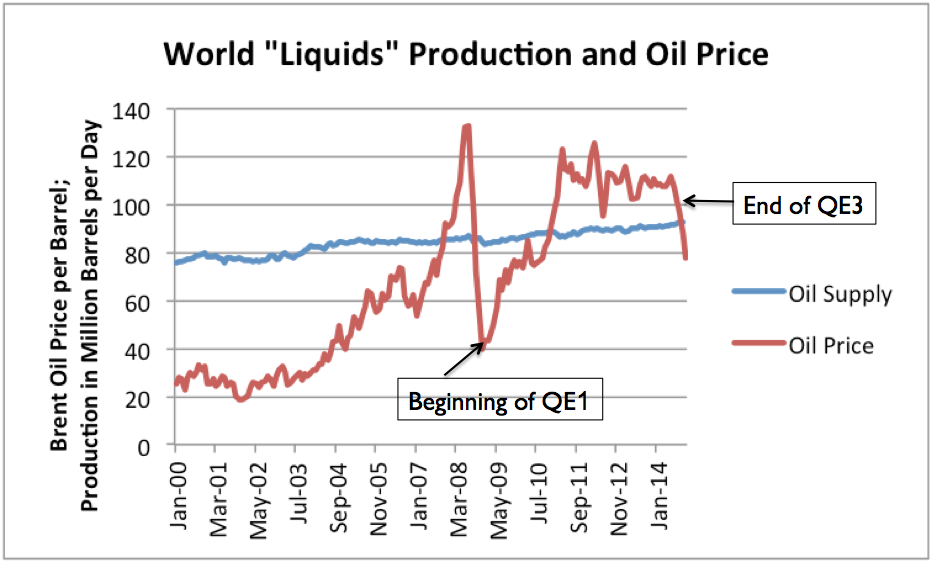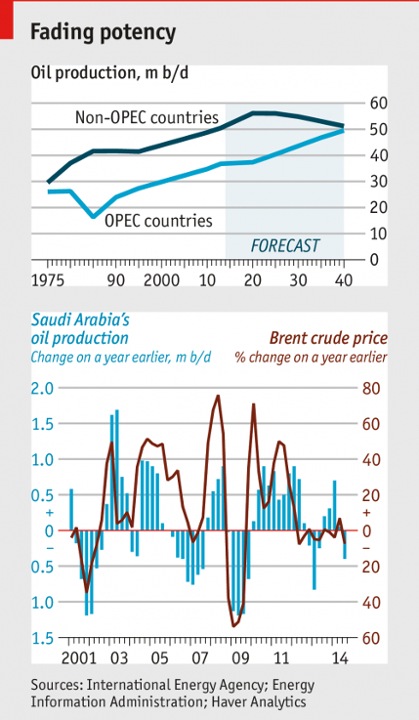Oil at 4yr low Cutting diesel petrol prices is bad economics; govt should raise taxes instead
Post on: 16 Март, 2015 No Comment

With two more state elections looming (Jammu & Kashmir and Jharkhand), the Modi government seems tobe leaning heavily on the oil marketing companies (OMCs) to reduce the prices of diesel and petrol.
The governmentlast week cut petrol price by Rs 2.41 a litre, the sixth reduction since August, and diesel by Rs 2.25 per litre on the back of falling international oil rates. Both the fuels are now decontrolled.
While these cuts will be good for denting inflation further, they are not in the long-term interests of the country. Reason: India still imports 80 percent of its crude, and any continuing fall in global prices will not only push up import bills and roil the rupee, but also damage our long-term energy security. We will expand on these reasons a bit later.
While we have deregulated diesel prices from this month, what we should do is raise taxes on both petrol and diesel so that pump prices do not fall too low. This will provide us a cushion in case global prices rise later this year, and also prevent diesel consumption from soaring once more. It will not need any tinkering with deregulation, which remains.
In fact, what the country should be doing is start raising kerosene and LPG prices in small doses in the coming months so that subsidies on these fuels are steadily reduced. The happy situation in diesel — where the OMCs are now beginning to make money — was achieved only because prices were raised by 50 paise a litre every month from January 2013. The same needs to be done with LPG and kerosene.
India’s annual subsidies on these two so-called common man’s cooking fuels will be a hefty Rs 65,000-80,000 crore this year, depending on how global oil prices move.
If there is one reason why the Indian economy went into a tailspin under the UPA, it was because of unrestrained growth in petro-fuel subsidies. This ruined the fiscal balance and created a massive current account deficit that only a slowdown could cure. Do NDA want to repeat all of UPA’s mistakes?
Consider the massive numbers involved.
According to the oil ministry’s Petroleum Planning and Analysis Cell (PPAC), between 2005-06 and 2013-14 (the first and last full fiscal years of the UPA), OMC under-recoveries were a massive Rs 8,33,482 crore — Rs 3,98,950 crore on account of diesel, Rs 2,03,778 on account of kerosene, Rs 2,06,112 crore on account of LPG and a smallish Rs 22,414 crore on petrol.
Diesel, cooking gas and kerosene caused us all this economic grief. Consider where we would have been if Rs 8,33,482 crore had been available to the finance minister for investment in infrastructure or genuine job creation.
Like that character in Kalidasa’s play, the UPA literally cut the branch it was sitting on by indulging in such massive giveaways on oil subsidies. Even assuming the very poor needed to be protected, we should have done this with a finite subsidy limit of Rs 2,00,000 crore for kerosene and LPG — which is what we spent on the MGNREGA make-work scheme over the same time period.
Put another way, eliminating the subsidy or keeping it limited would have created real assets and probably three or four times as many jobs as we actually managed to do with a boondoggle like MGNREGA.
If the NDA government has the country’s long-term interests in mind, this is what it should ponder. It should consider three reasons why pump prices should not be allowed to fall further.

#1: Compensating for the drop in global prices with equivalent taxes — including possibly a hike in the clean fuels cess — will keep pump prices stable. It will improve government finances, and also keep consumption and imports from rising too fast.
#2: West Asia has become a dangerous place with the US achieving near self-sufficiency in oil and gas, making it less interested in keeping global prices down and policing the sea lanes around the Persian Gulf. With most of West Asia in turmoil after the rise of radical groups like ISIS, oil supplies will be vulnerable to disruptions. This means prices could spike any time for non-economic reasons. There is also a foreign policy reason: the more we are dependent on Arab oil, the more we will have to kowtow to their fundamentalist positions internationally.
#3: If we keep dropping fuel prices in line with the global price, it automatically makes alternate fuels — coal, solar and wind energy — more unviable, and hence needing more subsidies to sustain. Do we want to replace high petro-fuel subsidies with even higher renewable energy subsidies? What do we gain by this?
#4: There is, of course, a counter-argument: lower fuel prices will help growth. I agree. But in this case, the actual cuts must happen after a longer period of fall and not every month. If, say, crude prices are down 10 percent in the previous quarter or half-year, the price should follow in the quarter of half-year after that. This way we can be sure that the price fall is sustainable rather than just a flash-in-the-pan.
It is tempting for a government facing two more elections (J&K and Jharkhand) to play populist by bringing down fuel prices, but nothing ruins good economics more than a government that is perpetually in election mode.
There is no end to elections (after J&K and Jharkhand, we could have Delhi in February) and from June the Modi-Amit Shah duo would have to consider Bihar as the next electoral challenge coming up in end-2015.
Where will the election thinking stop? Sensible politics demands sensible economics. And this means taxing petro-fuels more as global prices drop.














